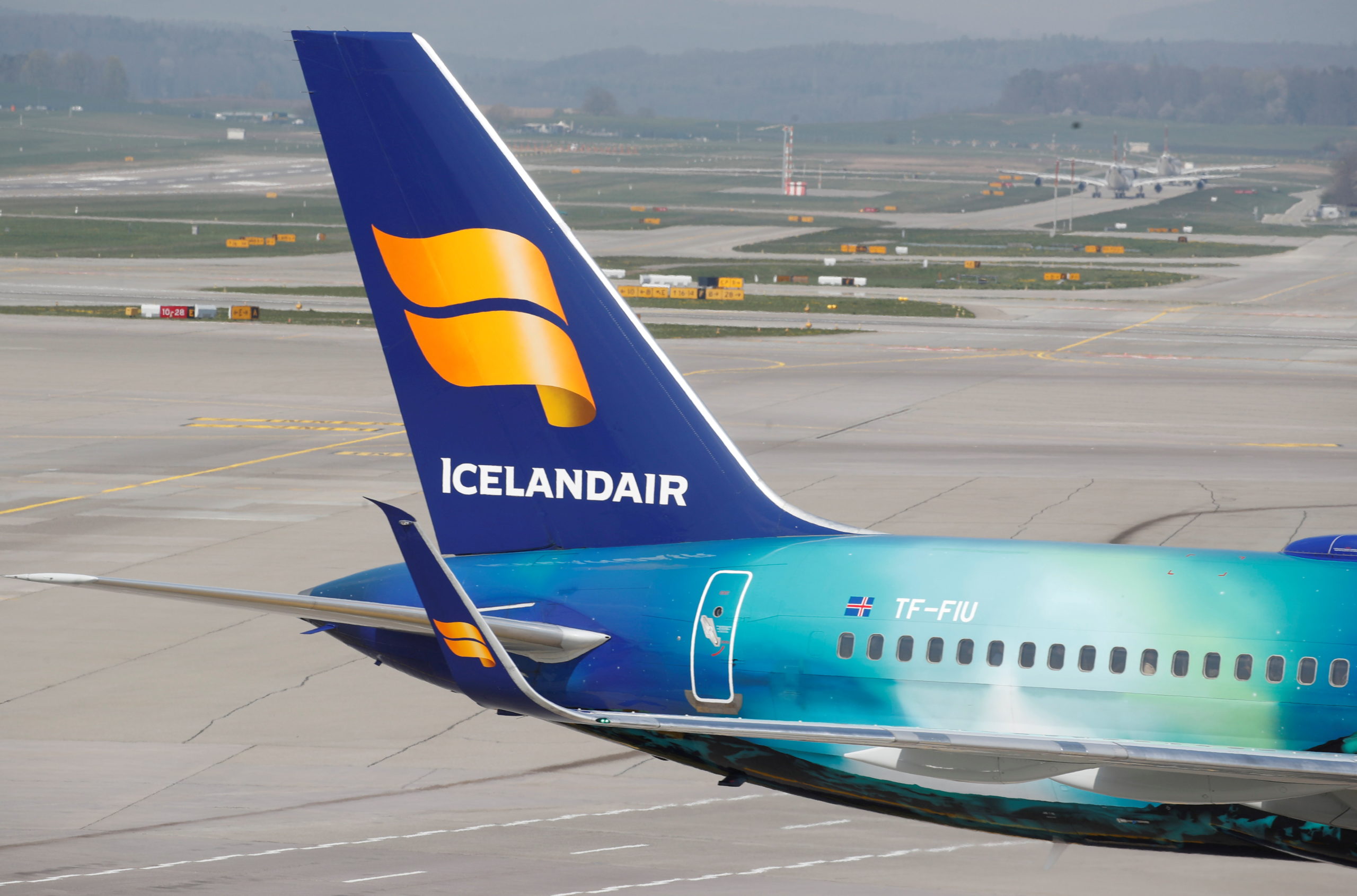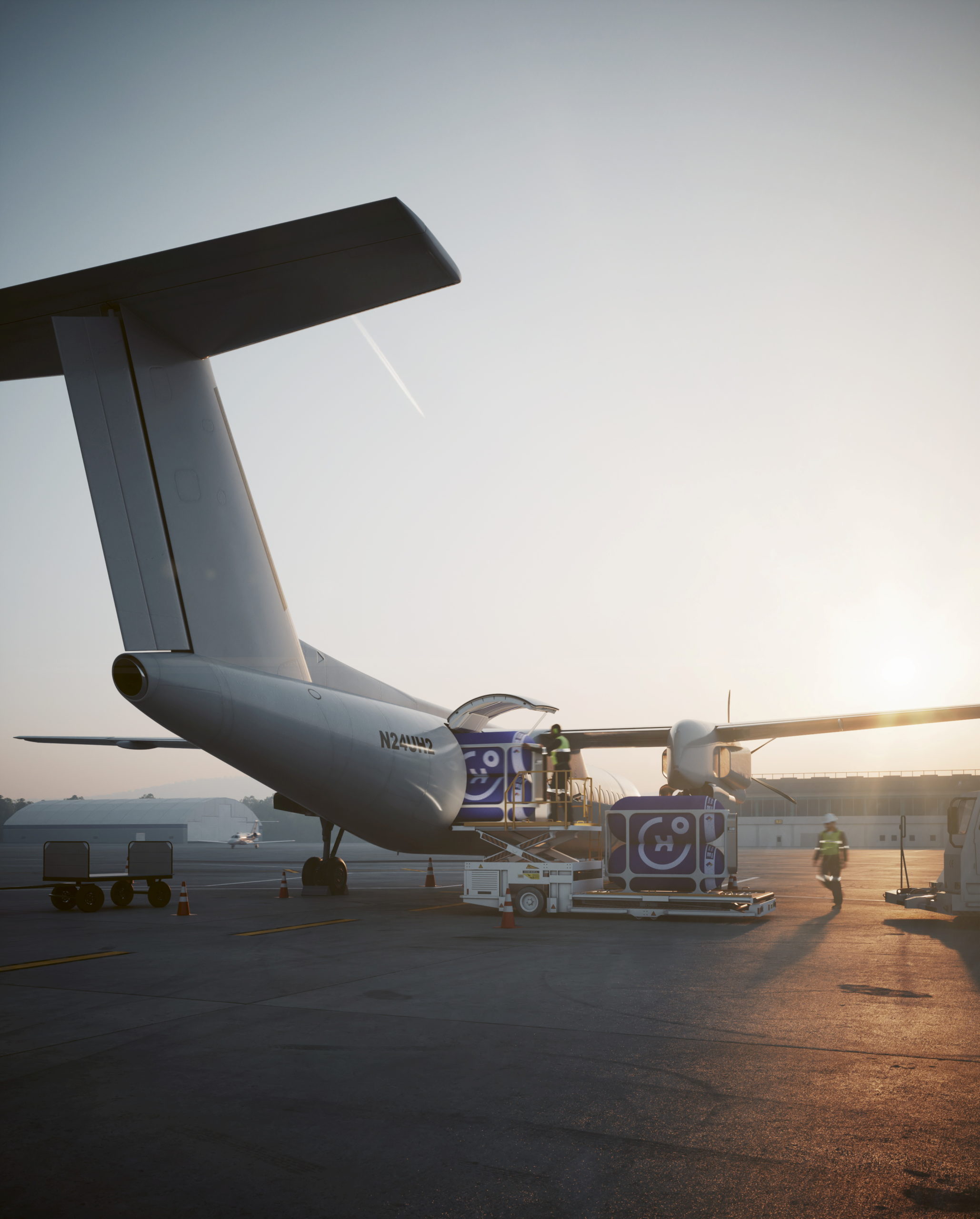Universal Hydrogen in zero-carbon plane deals with Icelandair, Ravn
The technology is designed for common turboprop aircraft, which means it could be transformative for Arctic aviation.
PARIS — Universal Hydrogen, a U.S. firm that aims to do for clean fuel what Nespresso did for coffee, is poised to announce preliminary hydrogen deals with airlines including Icelandair and Ravn Alaska, as it looks at a possible listing as early as next year.
Europe’s Airbus has captured attention with a pledge to introduce 100-seat hydrogen-powered airliners by 2035.
But founded by former Airbus technology chief Paul Eremenko, Universal Hydrogen aims to speed up the introduction of hydrogen for smaller regional airplanes to 2025 by using fuel cells fed by modular hydrogen capsules to replace their turboprop systems.
“It is a $2.5 billion market on a regional scale,” Eremenko estimated in an interview.
Universal Hydrogen is one of a cluster of companies flocking to efforts to decarbonize aviation and says it is trying to solve a crucial problem with the clean but highly flammable fuel: how to connect production to airports where it is needed.
“We are the Nespresso capsule of hydrogen. We don’t grow the coffee and we don’t make the coffee-maker,” Eremenko told Reuters, referring to the Nestle division whose capsules revolutionized premium coffee-drinking habits.
In order to kickstart demand, Nespresso offered coffee makers while encouraging others to build compatible machines.
“It is a similar model for us … Somebody has to build the first coffee maker and our version of that is to develop a conversion kit and offer that to regional airlines,” he said.
The kits include a fuel cell and electric powertrain to replace conventional turboprops built by Pratt and Whitney Canada. Airlines’ cost of investing in the kits can be offset against long-term contracts to supply fuel via modular capsules.
From the viewpoint of a passenger, the propellers remain while the engine architecture and fuel system behind them change, with some seats removed to fit the hydrogen capsules.
Under the tentative deals to be announced on Wednesday, details of which have been supplied to Reuters, Spanish regional airline Air Nostrum would buy 11 kits to convert current and future ATR 72-600 turboprop airplanes.
Ravn Alaska, which last year inherited part of the operations of bankrupt Alaskan regional carrier RavnAir, would buy five conversion kits under a long-term hydrogen fuel deal.
Icelandair would also buy conversion kits for its regional fleet as part of a long-term fuel supply deal.
Cost challenge
Both Ravn and Icelandair operate De Havilland Canada DHC-8 turboprops, more widely known as the Dash 8. Universal Hydrogen’s kits can convert power systems used on Dash 8s or ATRs.
Such aircraft are the fleet workhorses of nearly every regional airline operating in the Arctic or High North, including Air Greenland, Air Inuit and Norway’s Widerøe (all of which fly Dash 8s) and Canadian North (whose fleet includes several ATRs).

Not everyone is confident hydrogen will quickly solve the sector’s environmental challenges despite zero carbon emissions.
A European Union climate masterplan due on Wednesday is expected to include ambitious targets for alternative aviation fuels made from sources like waste. Boeing has focused more on such sustainable fuels than hydrogen.
Hurdles to be solved include cost and availability as well as uncertainty over how hydrogen systems will be certified.
“At the moment hydrogen is more expensive. We believe that in the future when hydrogen is more available it will become closer to being competitive,” Icelandair Chief Operating Officer Jens Thordarson told Reuters, adding governments should also provide support for the zero-emission fuel.
“There is a good opportunity for Iceland to be an early adopter of these kinds of technologies,” he added.
Iceland has plentiful renewable energy to create so-called green hydrogen without relying on fossil fuels in production.
Universal Hydrogen also plans to launch a design study with Deutsche Aircraft aimed at incorporating its capsules into a new version of the out-of-production Dornier 328 regional turboprop.
The same German company last week announced a partnership with H2FLY, a fuel-cell developer based in Germany, with a view to demonstrating a hydrogen-powered Dornier 328 by 2025.
Backed by investors including venture capital arms of Airbus, Toyota and JetBlue, Universal Hydrogen recently raised funds and is now exploring interim ‘Series B’ financing as it ramps up industrially.
Beyond this, it has its eye on joining a wave of listings via special acquisition vehicles or SPACs, “depending on how the SPAC market evolves over the next year or so,” Eremenko said.
“Hydrogen is the 100 percent decarbonization solution and there is a willingness and need to start talking about such measures.”

